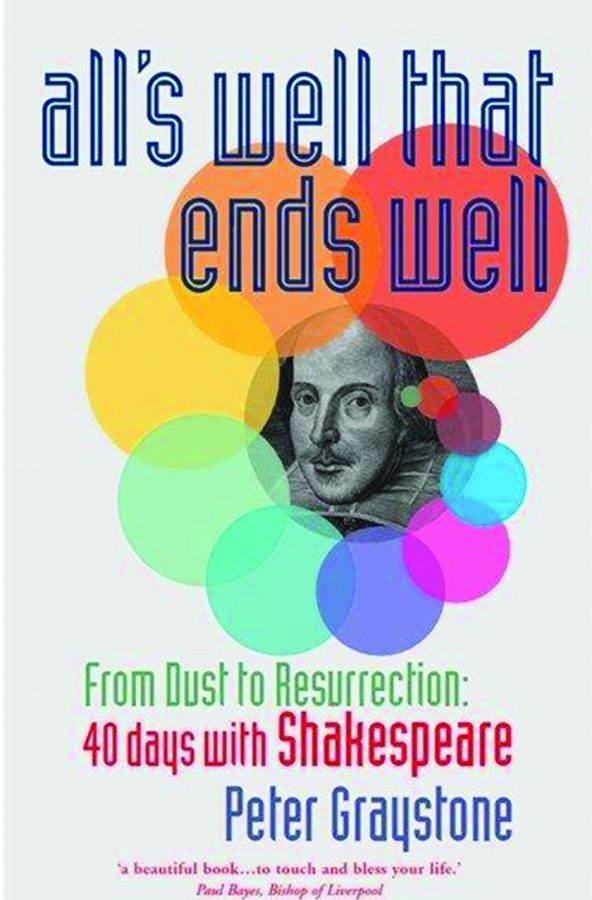 All’s Well That Ends Well:
All’s Well That Ends Well:
From Dust to Resurrection:
Forty Days with Shakespeare
Author Peter Graystone
Publisher Canterbury Press, £12.99
Format pbk
ISBN 9781786223548
Were you deterred from Shakespeare at school by the grinding need to study a set text? Or – more positively – were you enchanted for life when you saw one of the classic comedies or tragedies on stage and recognised the power of his prose and the depth of his characterisations? Surely it is only the Bible (especially the Psalms) which can exceed Shakespeare in providing a greater insight into the failings and foibles of the human condition. Perhaps that is why each guest on ‘Desert Island Discs’ is provided automatically with the Bible and the complete works of Shakespeare. What are we doing here, and what is the meaning of life? Both books provide an answer, in different ways.
The wonderful and original idea behind this delightful book is captured in its subtitle: ‘From Dust to Resurrection: 40 days with Shakespeare’. Peter Graystone, a Reader in the Diocese of Southwark, has taken excerpts from Shakespeare’s writings, elucidated their meaning, and linked them systematically and imaginatively to our Gospel story. Our humanity, exposed by the Bard, can be reconciled with God, day by day, as we journey into Lent. For forty days we can quarry the wisdom of Shakespeare and find it expanded and illuminated by the teachings of Scripture: the greatest glories of the English language, surpassed by the greater glory of Jesus Christ. .
Each of the forty sections has a Shakespearean excerpt, carefully chosen. Some are familiar words: ‘If music be the food of love, play on,,,; ‘To be, or not to be…’; ‘Jealousy…the green-eyed monster…’; ‘Out, damned spot!’ Nonetheless, fresh ideas spring from each page, and we are halted in our tracks, made to think and provoked into prayer. Other passages will probably not be known to you. Sonnet 29, for example, begins: ‘When in disgrace with fortune and men’s eyes / I all alone beweep my outcast state’, and Graystone quickly fastens this to the pathos and deep lament of Psalm 88. One of the loveliest excerpts is from Cymbeline – not a familiar play for me – a beautiful funeral poem which evokes the opening rite of Lent on Ash Wednesday: ‘Remember you are dust and to dust you shall return’. This provides a worthy opening chapter, and an ideal start to Lenten solemnities.
Was Shakespeare a model Christian? Perhaps he was all too fallible, given the deliberate bawdiness of some plays and what we know of his life. But there is a lot of evidence that he truly believed in God. For day 39 of our journey – ideally to be read on Holy Saturday – Graystone ingeniously provides not a play or a poem, but an extract from Shakespeare’s will. We remember of course that he notoriously left his wife Anne his ‘second-best bed; but elsewhere in the will we read: ‘I commend my soul into the hands of God my Creator, hoping and assuredly believing, through the only merits of Jesus Christ my Saviour, to be made partaker of life everlasting…’
As Graystone notes, Shakespeare’s literary legacy is a source of comfort which can sustain us in dark times. But ultimately it is derived from a firm faith in Jesus, and the resurrection hope of Easter. I commend to you this fine, interesting and original book.
Reviewed by MALCOLM DAWSON
Lenten devotion
